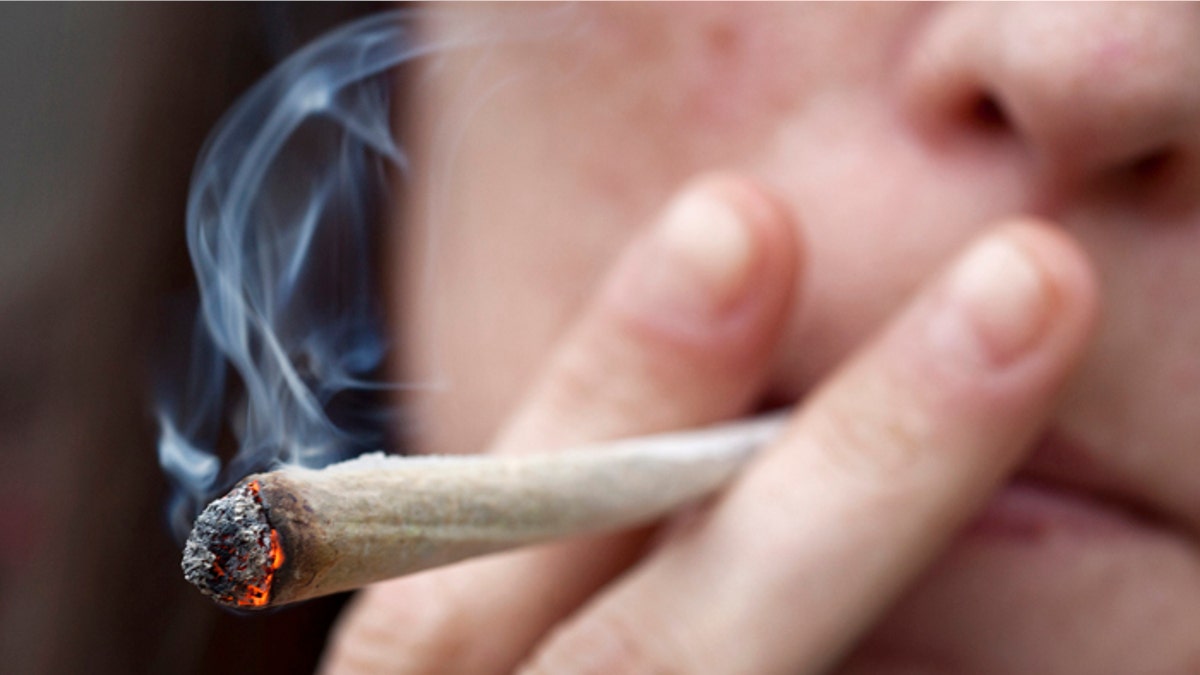
Heidi from Limburg, Belgium, smokes a joint in the Toermalijn coffee shop in Tilburg April 29, 2012. A controversial law that will make it harder for foreign tourists to buy cannabis at the Netherlands' famous coffee shops has been upheld by a Dutch court. The law, which goes into force in three southern provinces on May 1 before going nationwide next year, means coffee shops can only sell cannabis to registered members. Picture taken April 29, 2012. REUTERS/Michael Kooren (NETHERLANDS - Tags: SOCIETY BUSINESS DRUGS TRAVEL) - RTR31G54 (REUTERS/Michael Kooren)
Daily marijuana use is not associated with brain shrinkage when using a like-for-like method to control for the effects of alcohol consumption on those who both drink and toke up, a new study from Colorado has found.
The study, led by neuroscientists at the University of Colorado at Boulder and published Jan. 28 in the Journal of Neuroscience, points to continued uncertainty about how pot use alters the structure of the brain. Even so, other studies have found the drug has short-term effects on learning and memory.
The latest research comes as access to pot is expanding following 2012 ballot measures in Washington state and Colorado that legalized its recreational use, and voter-approved measures last year to do the same in Alaska and Oregon. The drug remains illegal under federal law.
"So far, there's not a lot of evidence to suggest that you have these gross volume changes" in the brain due to marijuana use, said Kent Hutchison, a clinical neuroscientist at the University of Colorado, Boulder, and the senior author of the study.
In particular, his study examined a paper released last year by researchers at Northwestern University that identified changes to the nucleus accumbens and the nucleus amygdala, regions of the brain that are key to regulating emotion and motivation, in marijuana users who smoke one to seven joints a week.
Hutchison's team said they tried to replicate those results by recruiting dozens of adults and adolescents and conducting brain imaging on them, and comparing daily pot users to non-users. But Hutchison said they took a different approach to rule out the effects of alcohol.
They closely matched daily pot users with non-users based on their alcohol consumption, to compare people who drank similar amounts, in what researchers believed would best eliminate the influence of alcohol, Hutchison said.
"We found no evidence of differences in volumes of the accumbens, amygdala, hippocampus or cerebellum between daily versus non-users, in adults or adolescents," Hutchison's paper said, referring to parts of the brain.
Anne Blood, a professor of psychiatry at Harvard Medical School who worked on the study released last year by Northwestern University, said the latest research failed to properly replicate her team's work because it did not include a healthy, non-substance abusing control group.
Also, Blood said her team found effects of marijuana use on the brain correlated to how much of the drug participants used, demonstrating a link.




















